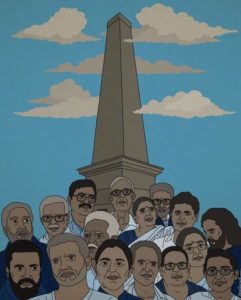Bhima Koregaon Case: An Analysis Of The Legal Framework, Evidence, And Implication for Civil Liberties

Journal of Legal Research and Juridical Sciences / by Olivia Hati, Yuvraj Singh
ABSTRACT
The Bhima Koregaon case refers to the arrests of several human rights activists and lawyers in India in 2018 for their alleged involvement in inciting violence during the Bhima Koregaon incident 2018. The Bhima Koregaon incident was a violent clash between Dalits (a historically marginalized community in India) and upper-caste groups in Maharashtra. The activists were accused of having links with Maoist organizations and were charged under the stringent Unlawful Activities (Prevention) Act, 1967 (UAPA), which allows for prolonged detention without bail and has been criticized for its potential for misuse. The case has been controversial, with many civil society groups and human rights organizations alleging that the arrests were politically motivated and an attempt to silence dissenting voices. The case has also drawn international attention, with several UN experts expressing concern about the treatment of the activists and the potential for human rights violations in the case.
Read more